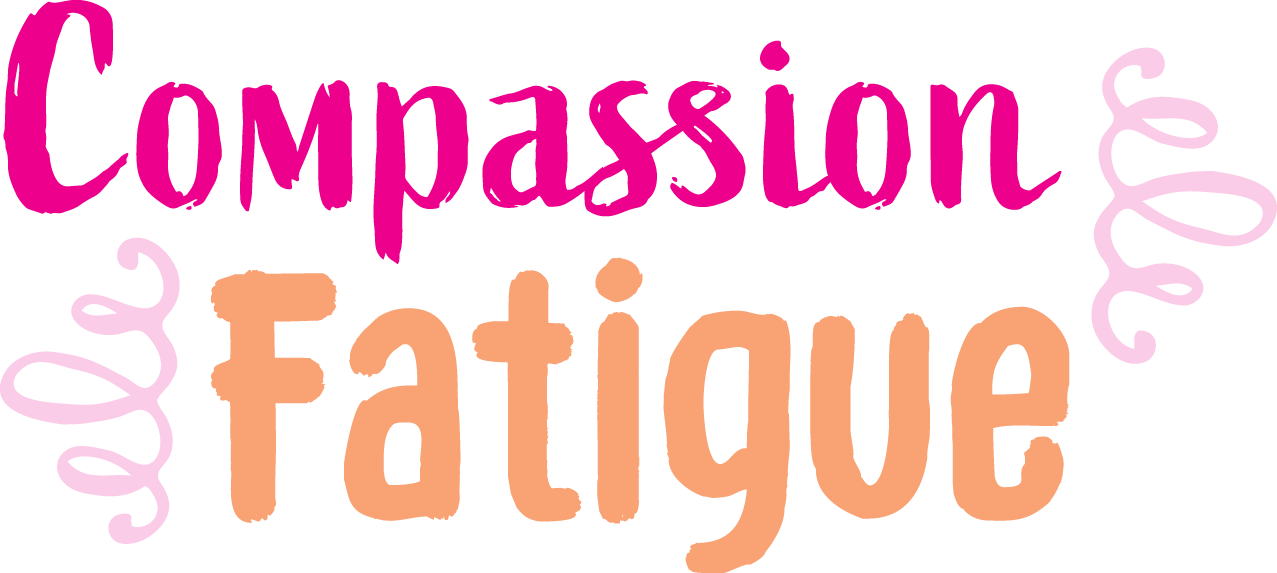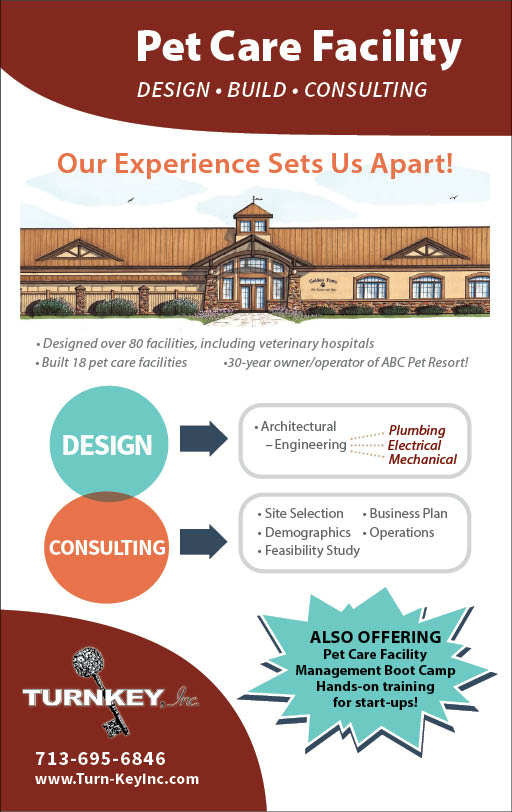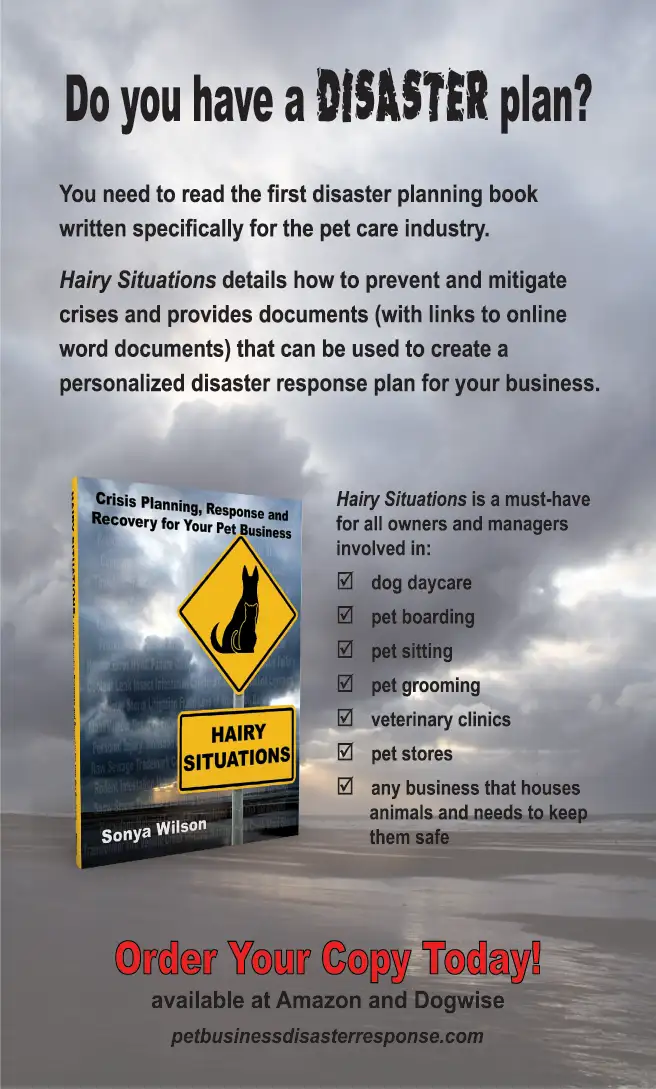


 he boarding facility’s daily arrivals are in the lobby, some of which the team has affectionate names for based on their behaviors. Nervous Nellie will spend the entire visit pacing. Bulldozer Buddy is an excessive digger. Hide-Away Henry will squeeze underneath anything to avoid being seen or touched, often refusing to come out even to eat. The entire team worries about these pets as they put forth a happy-to-see-you-again attitude, but the team is getting tired of feeling concerned and stressed. The reality is, they are feeling compassion fatigue.
he boarding facility’s daily arrivals are in the lobby, some of which the team has affectionate names for based on their behaviors. Nervous Nellie will spend the entire visit pacing. Bulldozer Buddy is an excessive digger. Hide-Away Henry will squeeze underneath anything to avoid being seen or touched, often refusing to come out even to eat. The entire team worries about these pets as they put forth a happy-to-see-you-again attitude, but the team is getting tired of feeling concerned and stressed. The reality is, they are feeling compassion fatigue.
Pet care professionals in boarding/daycare facilities are used to dealing with aggressive, nervous or destructive behavior from the pets “vacationing” at the facility. However, the constant exposure to pets under stress takes its toll on all team members, causing compassion fatigue. Compassion fatigue is an emotional side effect of working with pets in distress and suffering. Those three pets coming in on this particular day are suffering from fear, anxiety and stress, and the team is vulnerable to the pressure.
Compassion fatigue is characterized by physical and emotional exhaustion from wanting to care for or help pets in need. Some may call it the high cost of caring, or burnout. No matter what label you give it, those working in boarding/daycare facilities get worn down dealing with pets suffering from the stress of being away from home. The result can be employees quitting their jobs, or worse. The time is now for implementing a plan to improve pets’ experiences at boarding/daycare facilities and reduce the compassion fatigue experienced by the team.
- Make time for yourself: Exercise, hobbies, leisure activities, unplug from technology.
- Focus on your health: Meal breaks, healthy diet, adequate sleep.
- Create a support system.
- Practice mindfulness and meditation.
- Set boundaries: Know when to say “no.”
- Make work an enjoyable place.
Make work an enjoyable place? Is that even possible given all that is happening in today’s workplace; staffing shortages, demanding clients and challenging pet interactions? Of all the ideas that come to mind for making the workplace enjoyable, think about one potential area for improvement: creating a relaxed, low-stress experience for the pets.
Why focus on the pets? Isn’t this about the team’s stressors? For people who love connecting with and helping pets, a stressed pet is a crucial component of what stresses the team.
As Mikkel Becker, Lead Animal Trainer for Fear Free Pets points out, “When animals are stressed, their people are often stressed, and vice-versa. People and pets are emotionally linked, with animals continually influenced by how important humans in their lives are feeling. It’s important for people to take care of their own emotional health because it’s the right thing to do, and because a person’s emotional state directly impacts how the animals around them are feeling. Thus, in any aspect of animal care, including doggy daycare and boarding, it’s of paramount importance for both the physical and emotional wellbeing of both pets and people to remain a priority.”
Imagine the team’s relief when Nellie is seen relaxing during the day; when Buddy no longer has bleeding paws from excessive digging; or when Henry engages in playtime. Removing that sense of dread one has when faced with the daily struggle of dealing with stressed-out pets is a significant step in fighting compassion fatigue and making the workplace enjoyable for humans and animals.
So, how does one create a low-stress boarding/daycare experience for the pets? Here are two great resources to get started:
- Fear Free® Boarding & Daycare Certification Program2
- Low Stress Handling® University3
These resources are applicable to anyone working with pets. They provide the tools, training programs, video clips and slides to show the team how to create a better experience for pets staying at the facility for the day or a longer period of time. Both Fear Free and Low Stress Handling offer certification programs for pet care businesses.
Initiating a change to “the way things have always been done” will take some time because it is a cultural change. The team is fundamentally changing how they interact with pets, clients and even with each other. Used properly, the techniques presented in the programs mentioned above can help improve pet care, reduce client and employee churn, and improve the workplace environment for the team.
Implementing a change in the pet’s experience transforms the team’s daily interactions with pets, clients and coworkers. Instead of feeling powerless to help that stressed-out pet, team members can have the satisfaction of taking action when the pet displays an increase in fear, anxiety or stress. They can have the satisfaction of working with pet parents who value an experience that is pleasant and as stress-free as possible (and reading reviews raving about how comfortable and happy the pet was during its stay). They experience compassion satisfaction.
Applebrook Animal Hospital in Ooltewah, TN offers boarding services to their clients, and practice owner Dr. Kathryn Primm says her team focuses on giving a lot of TLC to those pets staying at their facility. “People that go into the pet care industry do so because they love animals. We are caring people whose feelings get a little hurt when the pets bite or scratch (even if we know it isn’t personal). It makes us feel great when clients tell us, ‘She loves to come here. She drags me in!’ Having pets love you back can make or break your satisfaction with your job,” Dr. Primm shares.
Many factors cause stress in a boarding/daycare facility. While we can’t prevent all stressors, we can have a strategic plan to lower the fear, anxiety and stress experienced by pets. This, in turn, improves the experience for pet parents and team members.
According to Temple Grandin, “Reducing fear will improve both the welfare and life of your pet.”
Isn’t this why people enter the pet profession, to take care of pets and improve their welfare? Then why not improve the boarding/daycare experience by reducing fear, anxiety and stress in pets, and give your team members the gift of compassion satisfaction?
- Assess your wellbeing. AVMA. https://www.avma.org/resources-tools/wellbeing/assess-your-wellbeing
- Fear Free® Boarding & Daycare Certification Program. Fear Free Pets. https://fearfreepets.com/fear-free-boarding-and-daycare-certification-program-overview/
- Low Stress Handling® University. Low Stress Handling. https://lowstresshandling.com/
Louise Dunn is a renowned award-winning speaker, writer and consultant. She brings over 40 years of in-the-trenches experience and her business education to veterinary management. Louise is founder and CEO of Snowgoose Veterinary Management Consulting. SVMC works with veterinarians who want to develop a strategic plan that consistently produces results. Most recently Louise received many awards including the WVC Educator of the Year numerous times and VetPartner’s The Life Time achievement Award in January 2016.


